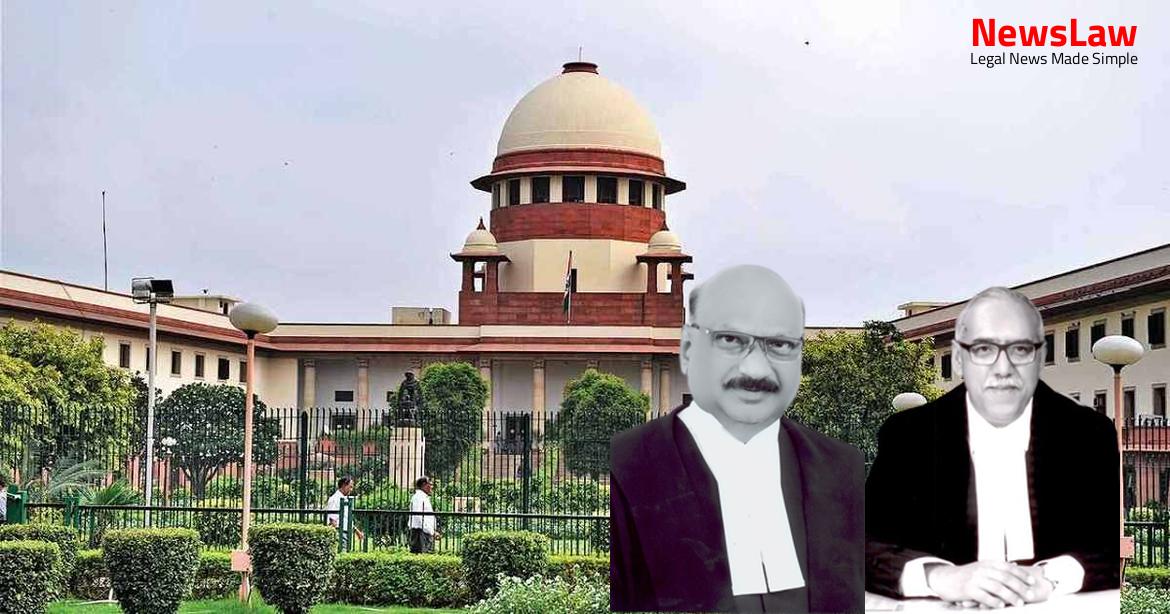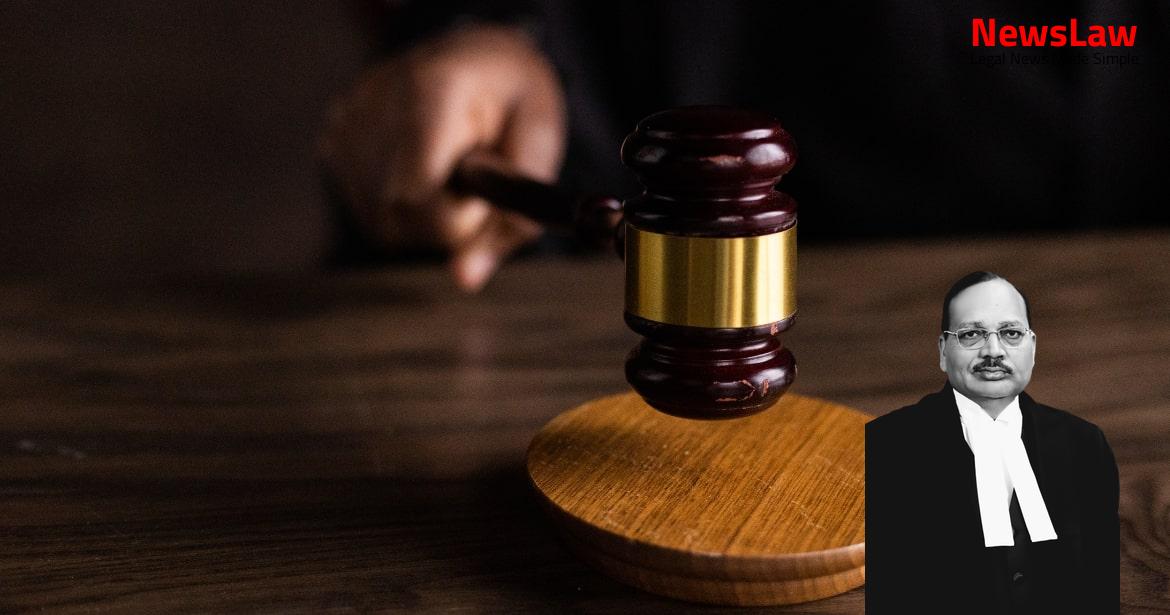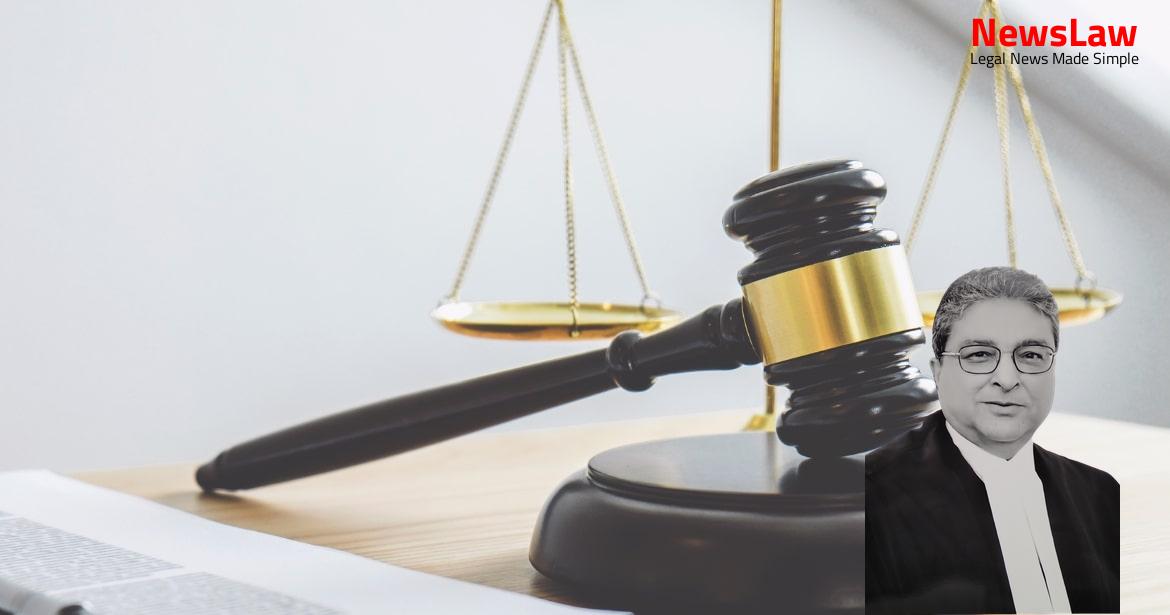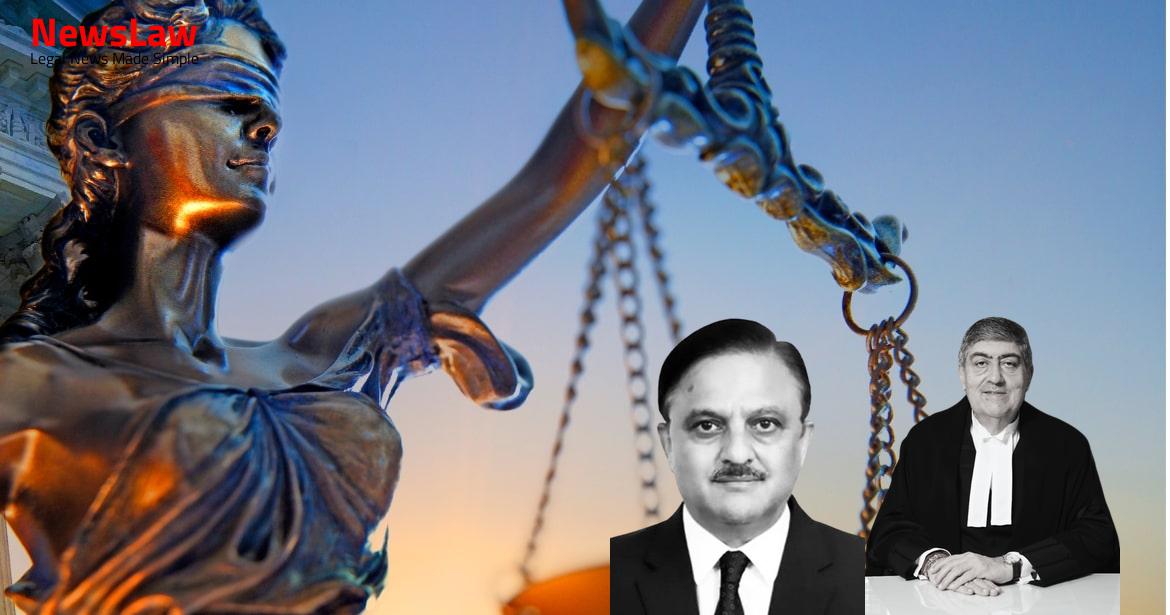A recent Supreme Court judgement shed light on the crucial role of the victim’s counsel in criminal proceedings. The Court analyzed the interactions between the victim’s counsel and the Public Prosecutor, emphasizing the need to maintain fairness and balance in the trial process. Stay tuned to learn more about this landmark decision.
Facts
- The Appellant sought various reliefs through an application under Section 301 read with the proviso to Section 24(8) of the CrPC.
- The reliefs requested included the right to advance oral arguments, raise objections to irrelevant questions, examine prosecution witnesses, cross-examine defense witnesses, and assist in the process of justice.
- The application was rejected by the Additional District and Sessions Judge, Fast Track Court, Calcutta on 25.07.2018.
- This rejection led to the filing of a revisional application C.R.R. No 2357 of 2018, which was affirmed by the Hon’ble High Court of Calcutta on 29.07.2019.
- Section 225 of the CrPC mandates that a Sessions trial shall be conducted by a Public Prosecutor.
- The High Court affirmed the crucial role of the Public Prosecutor in a Sessions trial.
- The proviso to Section 24(8) allowing the victim to engage a counsel does not dilute the mandate of Section 225.
- The High Court dismissed the appeal challenging the role of the Public Prosecutor.
- Victim’s counsel cannot cross-examine defence witnesses after the Public Prosecutor.
- Permission was granted for the de facto Complainant to furnish written arguments after prosecution’s arguments.
- Importance of distinguishing between assisting the prosecution and conducting it was highlighted by the High Court.
- Allowing the victim’s counsel too much leeway may impact the fairness of the trial, as per the High Court.
Also Read: Priority of Employees’ Dues in Asset Sale: SARFAESI Act vs. Land Revenue Code
Arguments
- Argument made by the Petitioner’s counsel emphasized that the role of the victim’s counsel should not be limited to filing written arguments, but should extend to making oral arguments and examining witnesses.
- Counsel referred to the reports of the Malimath Committee and Madhav Menon Committee to highlight the neglect of victims in the criminal justice system.
- Argued that the 2009 amendment to the CrPC aimed to address instances where the Public Prosecutor may fail in their responsibilities.
- Cited decisions from various High Courts to support the argument that the victim’s counsel should have a more active role in the proceedings.
- Highlighted the deliberate change from ‘cooperate with the prosecution’ to ‘assist the prosecution’ in the 2009 amendment as indicative of a limited role intended for the victim’s counsel.
- Emphasized the importance of the Public Prosecutor’s role as an officer of the Court and a minister of justice.
- Argued that the relevant provisions in the CrPC should be read together to ensure a meaningful role for the victim’s counsel.
- Reasons for ensuring greater participation of the victim in prosecution acknowledged.
- Extent of victim’s counsel’s assistance should be limited and subject to Public Prosecutor’s permission.
- Cited the decision of Tripura High Court in Uma Saha v. State of Tripura, 2014 SCC OnLine Tri 859.
- Victim’s counsel can suggest questions to the Court if an issue of importance is raised, such as Public Prosecutor’s failure in examination or cross-examination of a witness.
- Heard learned Senior Counsel representing both parties.
Also Read: Judgment Acquitting Accused in Satpal v. State of India
Analysis
- The role of the Public Prosecutor is crucial in the criminal justice system as they are tasked with conducting the prosecution of a case.
- The victim’s counsel is intended to have a secondary role and assist the prosecution, not lead it.
- The victim’s counsel should act in a manner that is fair to the court, investigating agencies, and the accused.
- The victim’s counsel can assist the prosecution by bringing forth oversights or deficiencies in the case presented by the Public Prosecutor.
- A harmonious reading of the provisions should be done to ensure the full effect of the victim’s counsel’s role while not overshadowing the Public Prosecutor.
- The Public Prosecutor is an independent officer of the court and plays a significant role in securing justice and fair play in a trial.
- The victim’s counsel should not have the unrestricted right to make oral arguments or examine and cross-examine witnesses, but can route questions through the Public Prosecutor.
- The interests of the victim are represented by the victim’s counsel under the proviso to Section 24(8), subject to the directions of the Public Prosecutor.
- Allowing the victim’s counsel a free hand may lead to a vindictive battle between the counsel and the accused, impacting the trial’s fairness.
- The Public Prosecutor’s responsibilities are significant in the criminal justice system, and they are not servants of the government or investigating agencies.
- To be eligible as a Public Prosecutor or Additional Public Prosecutor, a person must have practiced as an advocate for not less than seven years.
- A Special Public Prosecutor may be appointed for specific cases or class of cases if the person has been practicing as an advocate for not less than ten years.
- The victim may engage an advocate of his choice to assist the prosecution under certain circumstances.
- In every trial before a Court of Session, the prosecution must be conducted by a Public Prosecutor.
- The appointment of Public Prosecutors and Additional Public Prosecutors is done by the Central Government or State Government after consultation with the High Court.
- The Public Prosecutor or Assistant Public Prosecutor can plead and appear in court without any written authority in cases they are in charge of.
- If a private person instructs a pleader to prosecute in a case, the Public Prosecutor or Assistant Public Prosecutor in charge must conduct the prosecution with the pleader acting under their directions.
- A Magistrate may permit a person other than certain specified officials to conduct the prosecution in a case with permission.
- The person conducting the prosecution may do so personally or through a pleader.
- The High Court was correct in dismissing the application made by the Appellant seeking permission for her counsel to cross-examine witnesses after the Public Prosecutor.
- In the future, if the Sessions Judge deems it necessary for the victim to have the assistance of a private counsel, such a request may be permitted with the observations made in mind.
- Agree with the observations of the Tripura High Court that the victim’s counsel has a limited right in assisting the prosecution, which may include suggesting questions to the Court or prosecution but not asking them directly.
Also Read: Landmark Supreme Court Judgment in Parasvanath Developers Ltd. v. Chandigarh Housing Board
Decision
- The instant appeal is disposed of accordingly.
Case Title: REKHA MURARKA Vs. THE STATE OF WEST BENGAL
Case Number: Crl.A. No.-001727-001727 / 2019



